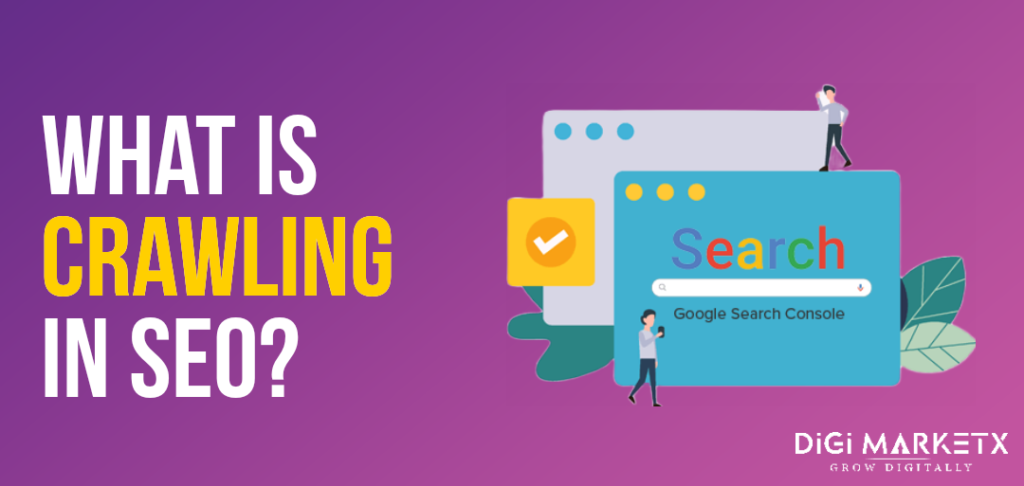Search engines use crawling to access, discover and scan web pages around the internet. So, crawling and indexing are the process by which Google explores and understands what your website is all about.
So, it can have a massive effect on your website’s SEO. If you want to get more clarity about what is crawling in SEO or how these crawlers work, here in this guide, we will explain what crawling and indexing are, what can affect your site’s crawlability and indexability, and how you can improve both.
What Is Crawling In SEO: Why It Matters
Crawling can be defined as the process by which Google deploys or sends an internet bot that is also known as a web crawler to a publicly available web page so that the bot can “read” or “scan” that webpage.
And when Google crawls a page, it scans all the text, images, and videos found on that particular web page.
This crawling process starts with a list of web addresses from past crawls and also sitemaps provided by website owners. When web crawlers visit these web pages, they utilize the links on those pages to find other web pages.
Crawlers particularly pay special attention to new websites, changes or updates to existing websites, and broken links. Crawlers visit and look at web pages and follow links on those pages just like how internet users browse content on the web.
Those bots or web crawlers generally go from link to link on a particular webpage and bring data about those pages back to Google’s servers.
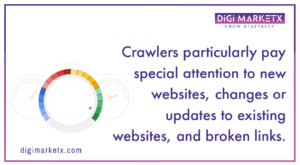
And the term “crawlability” actually refers to how well search engines can access and crawl the content on a particular webpage. When a page has been crawled, then its content can be indexed.
What Is Indexing: How It Works
You already know that in SEO, crawling is the process by which search engines read a web page, however, indexing is the process by which Google or other search engines organizes that information prior to a search query to enable faster responses for queries.
It means that when a particular page is indexed, Google will analyze the text, images, and video content on that page and then store it in a huge database of all the content it has discovered and which is considered good enough to serve up to searchers.
This process mainly involves processing and analysing all of the textual content and key content tags and attributes on a page, for example- title tags, alt attributes, images, videos, and others.
So, you might want to know what indexability is. The term indexability actually refers to the ability of a search engine to analyze a web page and add it to its index. If it is easier to index a page, then that page’s indexability is higher.
How You Can Ask Google To Crawl Your Website
The purpose of web crawlers is to explore the web regularly to find web pages to add to Google’s index. It means that if your website or web page exists, then Google will definitely find it.
And according to Google, most of the pages listed in its search results are not manually submitted for inclusion. They are actually found and added automatically to Google’s database while web crawlers were exploring the web.
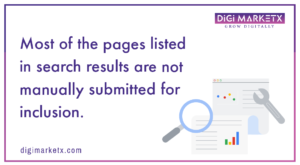
But, sometimes you might think it is necessary to ask Google to re-index your website for several reasons. For example, your website is not performing too well in search results as it used to, or your site is not ranking in SERPs at all.
So, if you need to request a re-indexing, then you can use Google Search Console tools to ask Google to reconsider crawling your site.
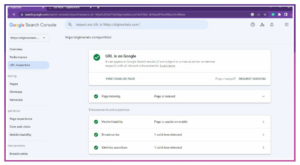
What Affects The Crawlability And Indexability Of Your Website
The following factors can affect the crawlability and indexability of a website.
- Website Structure: To make sure that your website is crawlable, you must have a solid informational site structure. The better your website structure, the easier it is for search engines to index your site. And if you have a weak site structure, then it could cause crawlability issues.
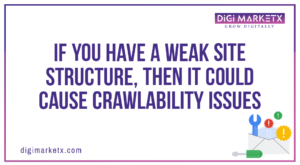
- Internal link structure: If you are creating fresh content on your website, but you are not linking to it anywhere on your site, then there is a possibility that web crawlers will not be able to find that content. That is why a solid internal link structure can make it really easy for crawlers to find even the new pages of your website quickly.
Other factors that can affect the crawlability –
- Broken Links and Redirects
- Server-related issues
- Blocking web crawlers from crawling and indexing a page
- Use of unsupported technology or scripts.
How You Can Improve The Crawlability And Indexability Of A Website: What You Need To Know
So, now you know what can affect your website’s crawlability and indexability. Here we will discuss how you can improve both.
- Submit Your Sitemap: If you want to make your website easier to crawl and index, then first you should submit a sitemap to Google via Google Search Console. Because when you submit a sitemap to Google, that file will tell Google everything about your content and share any updates you have made to your website.
- Update Old Content Or Create New Content: Regularly updating your old content is great for SEO, however, it can also help you to improve your website’s crawlability. Because Google is more likely to crawl and index sites that consistently update their old content or add new content.
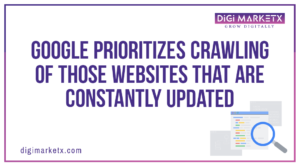
- Improve Website Loading Speed: When Google sends web crawlers to a site, they actually operate on a crawl budget. It means that they only have a certain amount of time allotted for crawling and indexing your website. So, the quicker your site loads, the more chances that crawlers will finish crawling your entire site.
Final Words
Improving the crawlability and indexability of your website is an excellent way to boost your website’s overall SEO. That is why understanding the crawling process in SEO is extremely crucial for you as a website owner. If you want us to help you reach your SEO goals, please request a free consultation here.
